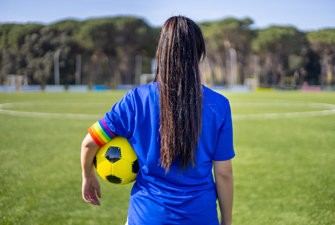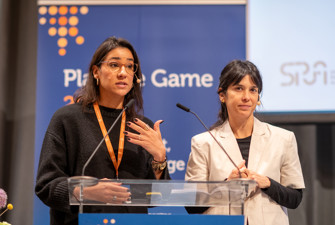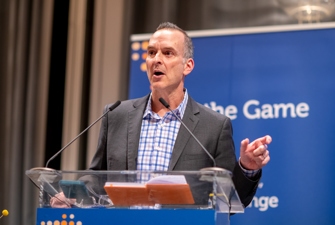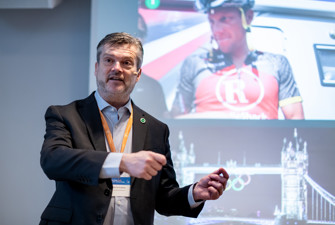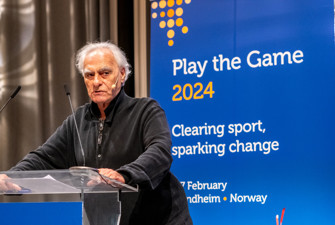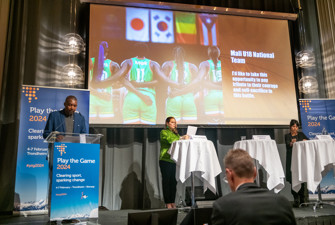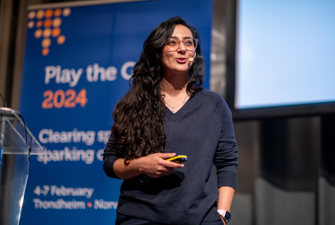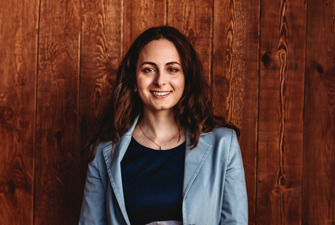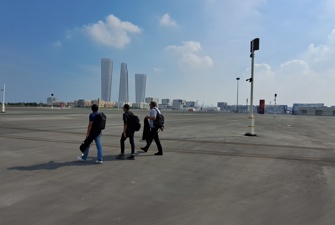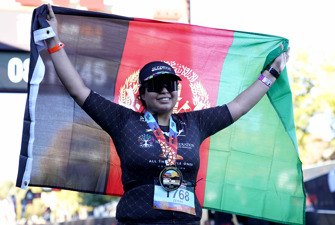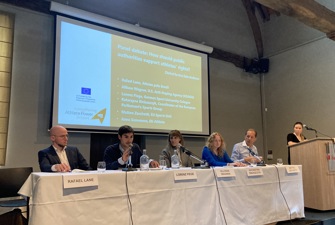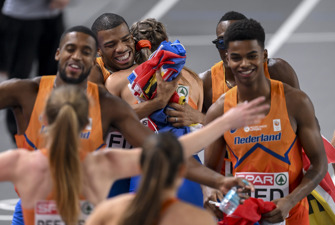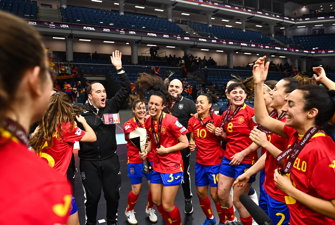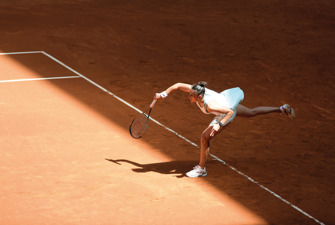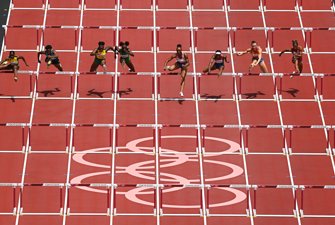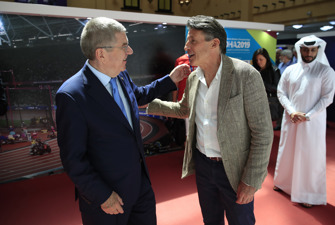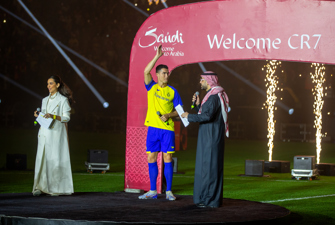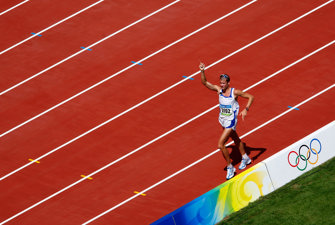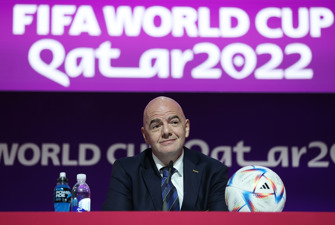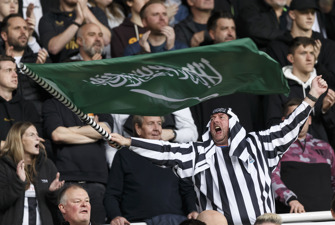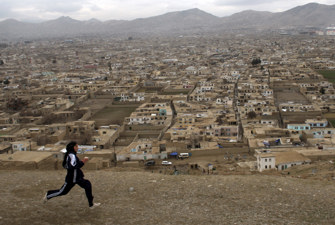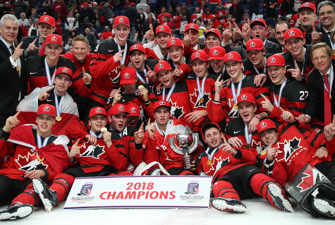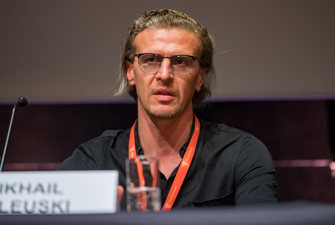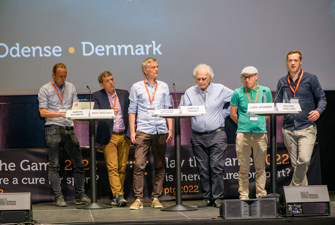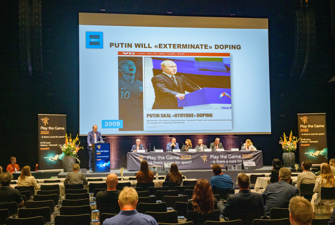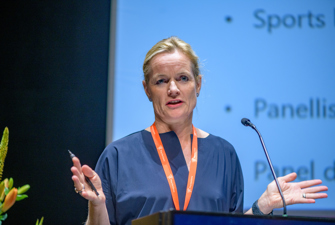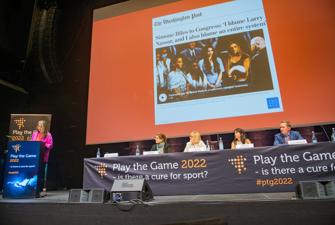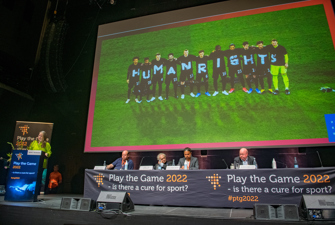Whistleblowers call on the UN to close human rights gap in sport
The CEO of the Institute of National Anti-Doping Organisations welcomes the human rights initiative from the couple who exposed state-sponsored doping in Russia: “The human rights perspective is important for the public to realise what systematic doping means and what it does to people."
To many stakeholders in sport it has been hard to accept that the Russian state according to the World Anti-Doping Agency (WADA) for years was responsible for doping Russian elite athletes without being punished for it by other sanctions than sporting sanctions.
But now, human rights experts in the US are trying to hold the Russian state accountable for human rights violations against the couple who exposed Russia’s institutionalised and systemic cheating in sport, the doping sanctioned athlete Yuliya Stepanova and her husband Vitaly Stepanov, a former anti-doping consultant at the Russian Anti-Doping Agency.
On behalf of the Russian couple, the International Human Rights Center at Loyola Law School in Los Angeles has submitted a communication to the United Nations Human Rights Committee alleging violation of several of their rights protected under the International Covenant on Civil and Political Rights.
"Yuliya deserves an apology"
“We don’t know what to expect of the UN. But we did not submit the communication because of money or a desire for more public attention,” Vitaly Stepanov says when he explains to Play the Game why the human rights perspective on the Russian doping case is important to him and Yuliya Stepanova.
The two Russian whistleblowers who now live as asylum seekers in the US with their seven-year-old son Robert are not advancing any claim of financial compensation. Should the UN Human Rights Committee recommend it and Russia act on the recommendation, their communication to the UN notes they will donate any compensation to charity or to a suitable non-profit organization.
“To us, this is all about trying to stand up as human beings against the criminals who run the country where we were born. Yuliya deserves an apology from the Russian state. And we hope that our son, if he decides to become an athlete in the future will be able to compete at a level playing field,” Vitaly Stepanov explains.
Treated like a racehorse
The views of UN treaty bodies are not binding decisions, they are recommendations only. But according to the International Human Rights Center at Loyola Law Center, the Russian case could have a huge impact on future human rights cases in sport:
“The UN could establish a precedent and ultimately help to close the human rights gap in sports,” Faraz Shahlaei says.
He is an Adjunct Professor/J.S.D. Candidate at Loyola Law School and one of the authors behind the communication. In 2019, Shahlaei first met the two Russian whistleblowers at Play the Game’s international conference in Colorado Springs.
“The moment that caught my attention and triggered this process was when Yuliya told the conference how she had felt treated like a racehorse by the Russian coaches and doctors,” he says.
“For years, I had been interested in the Russian doping case from an international law perspective. But Yuliya’s speech at the conference really made me think of it as a human rights case. Yuliya’s right to human dignity was clearly violated. And athletes are humans first.”
A violation of international obligations
In December 2020, the Court of Arbitration for Sports (CAS) confirmed a two-year ban of Russian sports federations from major sporting events and barred Russia from hosting international events for two years. The CAS decision was a result of six years of legal discussions about how to punish Russia for its state-sponsored doping regime that was exposed by the two Russian whistleblowers in 2014.
But when it comes to states, both the International Olympic Committee (IOC) and WADA have acknowledged that the question of state responsibility is outside their competence, the International Human Rights Center notes in its communication to the UN.
To international sport governing bodies, doping is an issue of fairness in sports competitions only. In sports law, doping is a mere disciplinary violation. And CAS decisions have legal consequences only for non-state entities such as national and international sports federations and individual athletes.
“This is the reason why we are now trying to hold the Russian state accountable for violating its international obligations in relation to UNESCO’s International Convention against Doping in Sports and the Council of Europe’s European Anti-Doping Convention,” Shahlaei says.
“Russia has ratified both conventions but failed to fulfil its obligations. In the doping case, Russia has violated literally every article of the UNESCO convention. That provides us with a very firm international law foundation to say that the Russian state in this case is responsible for human rights violations.”
Protection of dignity and integrity
According to the International Human Rights Center, Russia violated several articles of the UN International Covenant on Civil and Political Rights, including articles concerning ‘cruel, inhuman or degrading treatment’, ‘medical or scientific experimentation’, ‘forced labor or slavery’, and ‘freedom of expression’.
In Yuliya Stepanova’s case, article 7 in the International Covenant on Civil and Political Rights is in play. The article says that ‘no one shall be subjected to torture or to cruel, inhuman or degrading treatment or punishment. In particular, no one shall be subjected without his free consent to medical or scientific experimentation’.
The overall aim of the article is to protect both the dignity and the physical and mental integrity of the individual. And according to the article, states have the duty to protect individuals regardless of whether the violation was inflicted by people acting in their official capacity, outside their official capacity or in a private capacity.
“This communication does not claim Yuliya Stepanova was subject to torture. However, it does claim she was subject to cruel, inhuman or degrading treatment”, the International Human Rights Center writes and adds:
“In regard to the second sentence, the communication claims she was subject to medical intervention or scientific experimentation without her free and informed consent.”
The International Human Rights Center also points to the fact that the purpose of the Russian doping program was to prepare athletes for international competitions and to win medals for the country, even if this meant jeopardising their health, and that athletes enlisted in the doping program were treated cruelly, inhumanly, and degradingly:
“As Yuliya has declared, athletes in the doping program felt they were treated like racehorses by the state. Bets were placed on them by those who were supposed to take care of them. Athletes recruited in the doping program could be worked and doped to death as there was always going to be another athlete waiting to join after them.”
Free and informed consent
But how can an athlete who admitted she took part in Russia’s doping program now claim she did not do it voluntarily with free and informed consent and that she was a victim of human rights violations?
“Vitaly Stepanov asked me exactly that question when we first discussed the case, because Yuliya and all the other athletes in Russia knew they were doping,” Shahlaei remembers.
“But if athletes find themselves in an environment where everybody is doped and where officials are telling them that ‘you have got to do this otherwise we cannot pick you for the national team’, we argue that they did not do it with free consent because they had planned their life around sport and their financial prosperity was relying on that opportunity.”
Another part of the International Human Rights Center’s argument concerns the question whether the Russian athletes gave the Russian authorities ‘informed consent’.
“Informed consent means that they were informed of the risks of medical health consequences from doping. Yuliya was not informed of these risks. There was neither free nor informed consent in her case,” Shahlaei says.
Physical and psychological sufferings
Furthermore, the International Human Rights Center points out that Yuliya Stepanova has suffered both physically and psychologically from her past in the state-sponsored doping regime in Russia:
“She is already experiencing health issues, including the prospect of kidney failure because of abnormalities in her blood. Her blood is oversaturated with iron. To keep ferritin from poisoning her, she needs to keep running on a daily basis.”
And according to the International Human Rights Center, Yuliya Stepanova was psychologically crushed when she was abandoned by the state after her doping case was confirmed by WADA. The abandonment ultimately led to her decision to expose the Russian doping program:
“They had cared for her when she was useful and then discarded her when she wasn’t. All her life, men had used her. Her coaches and doctors were interested in her body or her talent. One or the other or both. She realised how cold the big machine could be when you are no longer deemed athletically hot.”
Even today, Yuliya Stepanova is affected psychologically. By the time she arrived in the US, she had cut most ties with people outside her family. And she is still cautious about forging relationships with new friends. She does not want anyone close to her because she could be hurt, the International Human Rights Center argues:
“While she left most of her possessions in Russia when she and Vitaly ran for their lives, she did carry with her a deep sense of betrayal. It started in her childhood. Her father, who died of cancer when she was 27, beat her, and her mother and her two sisters, she said, often scolded her for having Olympic dreams”.
To Faraz Shahlaei, Yuliya Stepanova’s physical and psychological sufferings indicate that her involvement in the Russian doping program was not based on free and informed consent.
“At first sight, it looks like free consent. But when you go outside, you see a structure where Yuliya and the other doped elite athletes in Russia had no options.”
Ethical and moral consequences
The Institute of National Anti-Doping Organisations (iNADO) agrees with that argument and welcomes the human rights initiative because it brings public attention to the responsibility of states to protect their athletes and ensuring a healthy environment around sports:
“Many people will say, that Yuliya could have just gone to another club and renounced the national team. I do not think that was a real option in her case. And that is not an option for many, many elite athletes. Their sport is a source of income. They earn money and support their families,” Jorge Leyva, the CEO of iNADO, says.
To him, the elite sport system in general is a place where athletes have not enjoyed proper protection, and the Russian doping case has proven that WADA was not able to sanction the real perpetrators.
“That is really a gap in the system that needs to be revised. But I cannot comment on the legal aspects of the human rights communication to the UN or how far it will go. What I can say is that we have not really figured out all the ethical and moral consequences of doping and I think the human rights perspective is important for the public to realise what systematic doping means and what it does to people,” Leyva says.
“People’s lives can be affected, damaged if not completely destroyed for years, for decades. We see in anti-doping the courage it takes for athletes to denounce doping. It is not just about right or wrong, but also about their relations to colleagues, teammates, friends, doctors.”
The tip of the iceberg
To the CEO of iNADO, athletes are vulnerable even at the highest level. In recent years, many cases have documented that elite athletes can easily become victims of not only doping, but also of physical, psychological, and sexual abuse. Some of these cases could also be viewed as human rights cases.
“Many athletes in many countries are not able to blow the whistle and say stop. It takes a lot to bring these cases forward. So, I think we have only seen the tip of the iceberg,” Leyva says and that is why it makes sense to him to urge the UN to view the Russian doping case from a human rights perspective.
“I totally understand that argument. The state was the perpetrator and I assume that Yuliya and Vitaly would have stayed in Russia if they had felt safe. If this case goes further and it brings some sort of comfort and understanding to Yuliya and Vitaly, I think it could be an argument for other whistleblowers to come forward and see they are not completely left alone.”
A human rights gap in sport
Whether the UN Human Rights Committee will bring comfort and understanding to the two Russian whistleblowers, remains to be seen. But in general, the UN is already urging states and sport governing bodies to close the human rights gap in sport.
“Many athletes face obstacles in accessing effective remedies and obtaining full redress for violations of their human rights in sport, since most disputes related to professional sport are adjudicated by private dispute resolution mechanisms thar are not designed to fully address human rights complaints,” the UN High Commissioner for Human Rights wrote in 2020 to the UN Human Rights Council in a report on the intersection of race and gender discrimination in sport.
While sport is often an instrument for promoting peace, development, solidarity and human rights, the report notes that UN human rights experts and activists are aware that sport is often characterized by inequality and discrimination within and across national borders:
“In accordance with their obligations under international human rights law, states should ensure that non-state actors, including sport governing bodies, respect human rights in their own regulatory regimes and are accountable for breaches,”the UN report states while also urging sporting bodies to commit themselves to protecting and respecting internationally recognised human rights:
‘They should meet their responsibilities to protect rights and minimize harms to rights by adopting human rights policies that apply to athletes, events, and competitions (from bidding processes to game time), fans, journalists, and others’.
One step at a time
In 2010 during the Olympic Winter Games in Vancouver, Vitaly Stepanov first told WADA about Russia’s doping program. Three years later, Yuliya Stepanova collected the evidence in taped conversations with her coaches and doctors.
Nevertheless, it took ten years before CAS sanctioned Russian sport. Now, it is expected to take several more years for the UN to decide whether the Russian state violated the two whistleblowers’ human rights.
But after having spent five years as asylum seekers in the US so far, the Russian couple has learned to live in the present and be patient about what to expect of the future. Vitaly Stepanov says:
“We don’t speculate about the outcome of our UN case. We just take one step at a time.”






